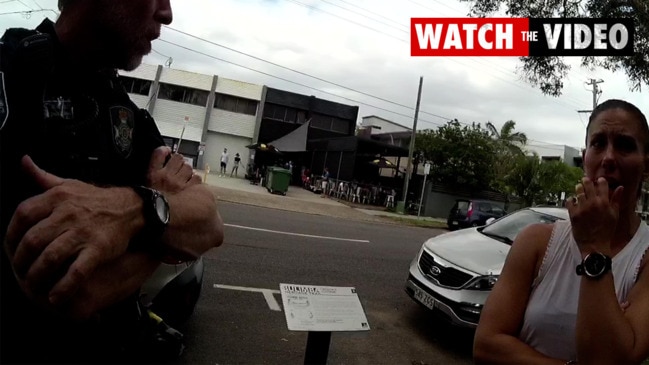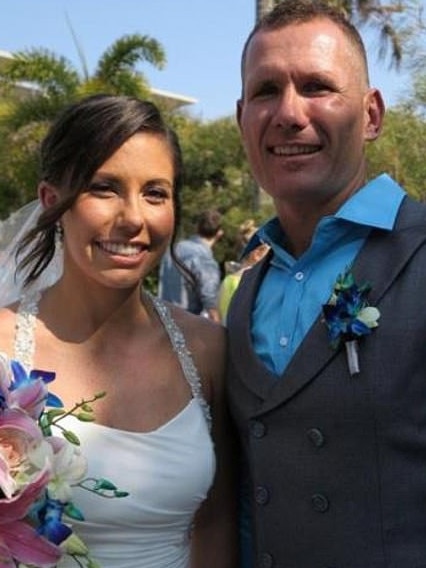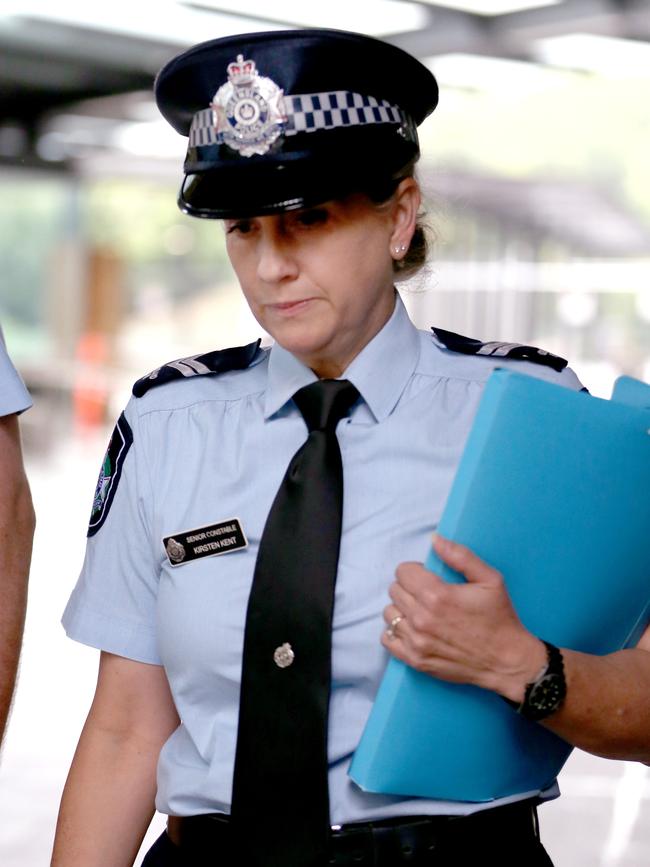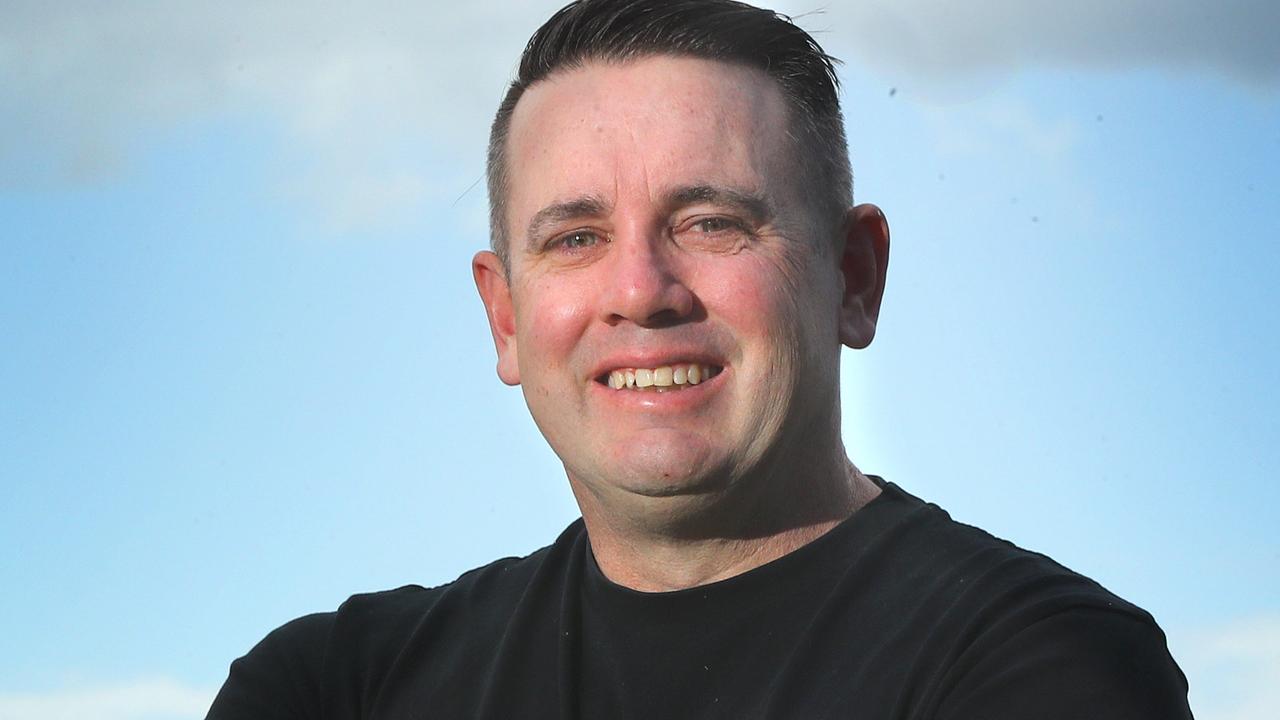Hannah Clarke inquest: Sex demand a sign you could be in danger
When Hannah Clarke first told police about her husband’s behaviour, they weren’t “greatly concerned” – until she mentioned this sex demand.

Real Life
Don't miss out on the headlines from Real Life. Followed categories will be added to My News.
When Hannah Clarke visited Carina police station in Brisbane on December 6, 2019, to discuss her fears about then-husband Rowan Baxter’s behaviour, the officer she spoke to wasn’t “greatly concerned” at first.
At a coronial inquest on Monday, domestic violence liaison officer Senior Constable Kirsten Kent remembered “discussing saying not everything is domestic violence, just because they’re not a very pleasant man doesn’t mean it’s necessarily domestic violence”.
Then the 31-year-old described having sex with Baxter as “another chore” she “had to do at the end of the day”.
“She disclosed to me that he makes her have sex every night and I went: ‘OK, now we’ve got something’,” Sen Const Kent recalled.
The way Ms Clarke explained it at the time, Sen Const Kent said, “was she may not have enjoyed it and didn’t particularly want to do it every night, but he wasn’t violent when they were having sex”.
“Hannah said he wasn’t holding her down, but she said she did it so the house would be peaceful the next day,” she added.
“She was unaware that she was in a domestic violence relationship.”
Less than three months later, on February 19, 2020, Baxter doused the inside of the family’s SUV in petrol while Ms Clarke and their three children – Aaliyah, 6, Laianah, 4, and son Trey, 3 – were inside, and ignited it on a Camp Hill street.

Your partner “expecting” you to have sex with them when you’re not in the mood to may not seem like a red flag, but, as Our Watch CEO Patty Kinnersly told news.com.au, “When a woman is pressured into having sex, it is a form of abuse, and it is driven by inequality.
“Within our society, structures, attitudes and beliefs can reinforce that a man’s desires and wants are more important than a woman’s.”
Being forced or pressured into nonconsensual sex, CEO of Full Stop Australia, Hayley Foster, told news.com.au, “has historical roots stemming from the idea that women are the property of their husbands and that when they make a commitment to marry, they also hand over their conjugal rights”.
As Ms Foster pointed out, it was still legal to rape your wife in a number of Australian states and territories in the 1980s – with the Northern Territory the last to criminalise it in 1994.
The 2017 National Community Attitudes towards Violence Against Women Survey (NCAS) found that attitude still prevailed: of the 17,500 Australians over the age of 16 surveyed, one-in-five still didn’t consider it a crime for a man to rape his wife.
One-in-three believed rape results from men not being able to control their need for sex.
“There are deeply entrenched attitudes in our community about the role of men and women in relationships,” Ms Foster said.
“Men and boys are taught that it is manly to want to have sex all the time and to be in control when doing so. Women and girls, on the other hand, are often conditioned to be sexually desirable and to please others.
“To be a ‘good girlfriend’ or a ‘good wife’ means maintaining your looks and ensuring your man is satisfied.
“Many would say we’ve moved past this archaic thinking but these are still really pervasive ideas.”


Pressuring someone to have sex when they don’t want to by using intimidation, threats, force or punishment is coercive control, provided there is a power imbalance, Ms Foster explained.
But if it results in unwanted sexual activity, it also constitutes as sexual assault, and if it occurs in an intimate or family relationship, it is considered domestic violence.
“It’s about control. If one person in an intimate relationship is creating an expectation on the other person to have sex, and takes active measures to pressure them in this way, it’s really problematic,” she said.
And it “can have really serious and long-term impacts on a person’s physical and mental health, and on their intimate relationships going into the future”.
Most women – and men – can likely recall at least one occasion when they’ve been pressured to have sex. Asked when this feeling of “obligation” crosses the line to represent something more concerning, Ms Foster was adamant: “You can’t just sexually assault someone a little bit. Consent is either there or it’s not.”
It’s a factor being made clear in new and emerging sexual consent laws in NSW – with the Make No Doubt campaign – and other states and territories are following suit.
“We need to have these explicit conversations with young people. They actually really appreciate it,” she said.
“If you don’t have enthusiastic consent from someone to participate in a sexual activity, then you don’t actually have consent. Sexual activity without consent is sexual assault.
“The onus of determining whether the other person consents needs to rest on the person seeking to initiate that sexual activity.”
Ms Foster said there’s now “a real opportunity to have conversations with men and boys about this issue”.
“There’s often an acceptance of the idea that you can just wear your partner down until they ‘give in’ to sex. But that’s not consent,” she added.
“We need to be really clear about this. There’s a really big difference between inviting someone and showing interest, and pressuring them after they have shown resistance.”
At the end of the day, Ms Foster said, “pressure to have sex when you don’t feel like it is not okay”.
“You don’t have to put up with it. And whilst it’s not your responsibility to make your partner stop doing this, support is available to help you navigate your situation.”
Originally published as Hannah Clarke inquest: Sex demand a sign you could be in danger





